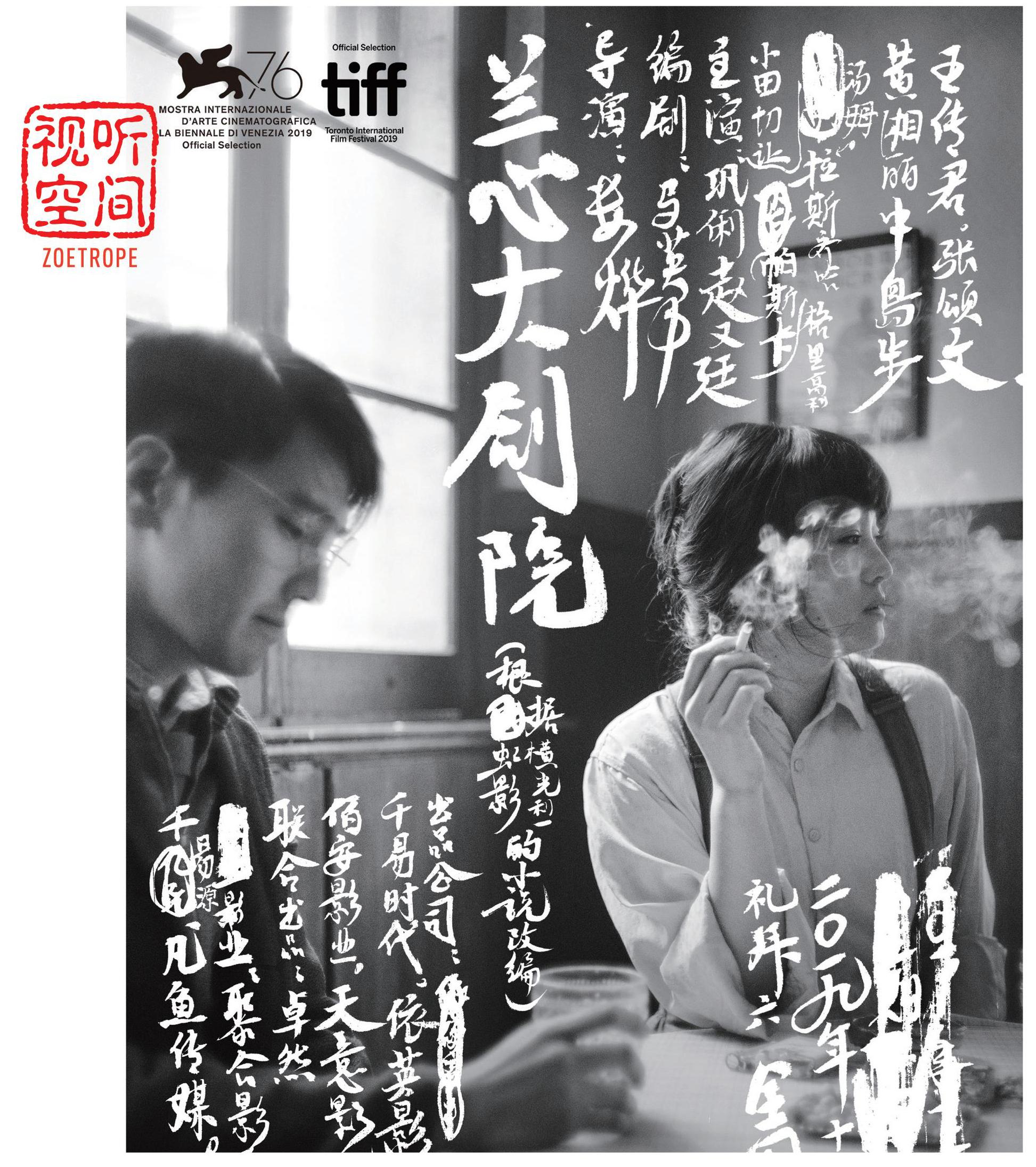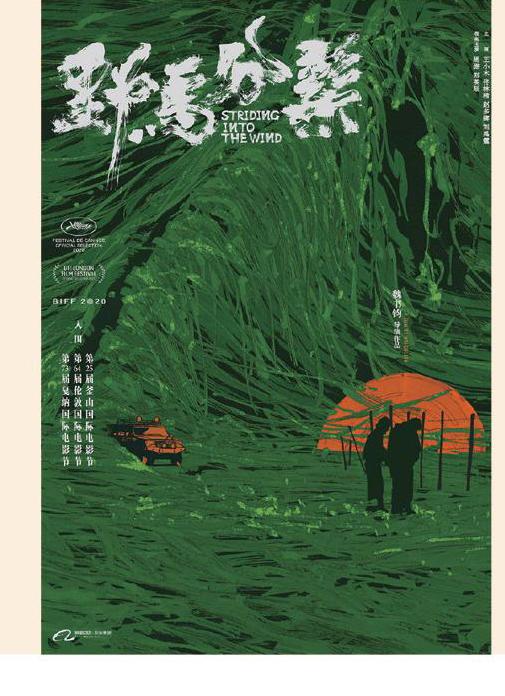ASpy in Shanghai



After the cancellation of its planned high-profile premiere due to vague “internal production problems” in 2019,Saturday Fiction(《蘭心大剧院》), a black-and-white thriller, finally hit Chinese big screens on October 15.
Director Lou Ye oversees a cast of internationally-renowned stars, including Chinese film icon Gong Li, in a combined adaptation of the novelsDeath in Shanghaiby British-Chinese writer Hong Ying andShanghaiby Japanese author Yokomitsu Riichi. The film revolves around actress Jean Yu (Gong), returning to Shanghai to star in a play,Saturday Fiction, directed by and co-staring her old flame Tan Na (Mark Chao) in 1941 during the Japanese occupation.
Various parties are inexplicably keeping close track of Jeans movements, including the obsequious manager (Tom Wlaschiha) of her French Concession hotel, who taps her phone. Speculation abounds in Shanghai society about Jeans ulterior motive for returning to the city, ranging from rekindling her love with Tan to rescuing her ex-husband (Zhang Songwen), who is being held in a Japanese prison. As the movie unfolds, Jean is revealed as a spy for the Allied Powers, but her loyalties are far from clear-cut.
The film reflects a more commercial turn in Lous filmmaking oeuvre. The 1965-born director from Shanghai, has been known for dark documentary-like films full of sex, violence, and death. His works seldom venture into the mainstream, and are rarely box office successes. Nevertheless, previous works likeSuzhou River(2000),Purple Butterfly(2004), andSpring Fever(2009) earned him much international prominence.
But despite his critical success in Europe—Saturday Fictionwas nominated for the Golden Lion Award at the 76th Venice International Film Festival—Lous offering has been met with lukewarm audience numbers and mixed reviews. The movie has a decent but unremarkable score of 7.3 out of 10 on Chinas most popular film reviewing platform, Douban. It attracted less than 500,000 moviegoers in its first three days, much lower than expected.
Lou follows the play-within-a-play narrative style of the original novels. The movie begins in a rehearsal, with Jean playing a strike leader of the patriotic “May 30th Movement” of 1925 against the Japanese and the Beiyang government, alongside Tan as the male lead. In an interview at the CineCina film festival in 2020, Lou clarified this is actually a hint to the audience from the beginning that space and time are confused in the film.
By adopting handheld cameras, shaking slightly as the action plays out, Lou injects the turbulence of this uncertain age into each shot, creating a world in which crisis may break out at any moment. It is perfect for the tense gun-toting finale, which feels so immersive that the theater audience might think they have to dodge some bullets themselves.
Chinese film elites are pleased. In a paper published in Chinese academic journal Movie Review, Professor Zhang Yan of Beijing Normal University, and Ran Yuguo, a postgraduate student, praised the films in-depth focus on the psychology of its female characters, which “means the film is far more than an espionage adventure.”
The subplot between Jean and Bai Mei (Huang Xiangli), a Kuomintang spy tasked with finding out Jeans hidden motive, does indeed make the film special. Their initial relationship based on mutual exploitation—Jean not fooled by Bai in the slightest—later evolves into mutual support when they find they share a passion for acting and had similarly lonely childhoods as orphans.
The women have no choice in their assigned identities in this age of conservative gender norms, but that doesnt mean they cant rebel and pursue what they really desire. Bai refuses to betray Jean and aspires for an acting career, while Jean desires to end the war, eventually going against her role and her French foster father Frederic Hubert (Pascal Greggory), himself a spy, by withholding information about Japans plans to attack Pearl Harbor. These womens courage to rebel originates from their powerful, mutually supportive relationship.
However, not everyone sings praises for Lous film. Its bold aesthetic choices make for difficult viewing. “I feel dizzy and lightheaded due to the shaky camera. I seldom got a clear moment to watch the performance of the actors and to contemplate their faces,” Wang Qi, a student in Tianjing, tells TWOC.
Critics also took aim at the shallow characterization and weak plot, despite the veneer of complexity. For example, why is Jeans ex-husband being held by the Japanese, and why is her plan to rescue him riddled with so many flaws? Without these explanations, Jeans ex-husband only seems to be there to propel the story along.
Saturday Fictionpromised so much: an espionage story of romance, action, and betrayal, all the ingredients to keep audiences entertained and the box office stuffed full. However, the plot and visuals are regrettably undermined by Lous pursuit of provocative arthouse aesthetics, making it hard for the film to pull at the heartstrings of Chinese audiences.
–Ji Jingjing(紀菁菁)
Jean Yu (Gong Li) returns to Shanghai, drawing attention from media and various parties
MUST-SEE MOVIES
Striding into the Wind
Debuted at the Cannes Film Festival last year, this autobiographical coming-of-age story is the latest offering from director Wei Shujun, a new Chinese darling for the international indie film scene after he won Cannes Special Jury Distinction Award in 2018. A slow-burner full of long takes and dry humor, it follow happy-go-lucky knucklehead Kun, a just-graduated film student, struggling to keep his life together while clutching to a dream to visit the grasslands of Inner Mongolia in a battered Jeep Cherokee.
Love After Love
The latest adaptation of inter-war writer Eileen Changs short stories to hit the silver screen,Love After Lovefollows a young girl adopted by her notoriously promiscuous aunt and slowly corrupted by Hong Kongs high life. The production boasts a star-studded list of names in both cast and crew and some vibrant cinematography, but it was not enough to prevent gleefully derisive reviews of the acting quality and directorial vision.
The Battle at Lake Changjin
This three-hour long epic, bathed in jingoism, is currently the highest grossing Chinese release of all time. Chen Kaige ofFarewell My Concubinefame is one of the joint directors of this action-packed tale of a team of Chinese soldiers during the Korean War, fighting in a key battle against US troops in minus-30 degrees Celsius weather near the Chosin Reservoir (also known as Lake Changjin), North Korea. The emphasis on heroic sacrifice and bravery has proved enough to pluck at the audiences heartstrings.
Little Canned Man
Adapted from the work of Chinas beloved childrens author Zheng Yuanjie, this live-action film follows one of the many adventures of two of Zhengs most famous characters, twins Pipilu and Luxixi. Luxixi finds five tiny people in a can, leading to all sorts of whacky school shenanigans. Given that many parents have fond memories of childhoods spent saving up for one of Zhengs books, its perfect family viewing, with reviews applauding the production retaining the flavor of the originals, like Zhengs signature criticism of the absurdities of Chinas education system. – Alex Colville
 汉语世界(The World of Chinese)2021年6期
汉语世界(The World of Chinese)2021年6期
- 汉语世界(The World of Chinese)的其它文章
- Balcony
- Gimme Sugar
- Access Wanted
- Class Struggles
- The Cost of Cute
- 学汉语
